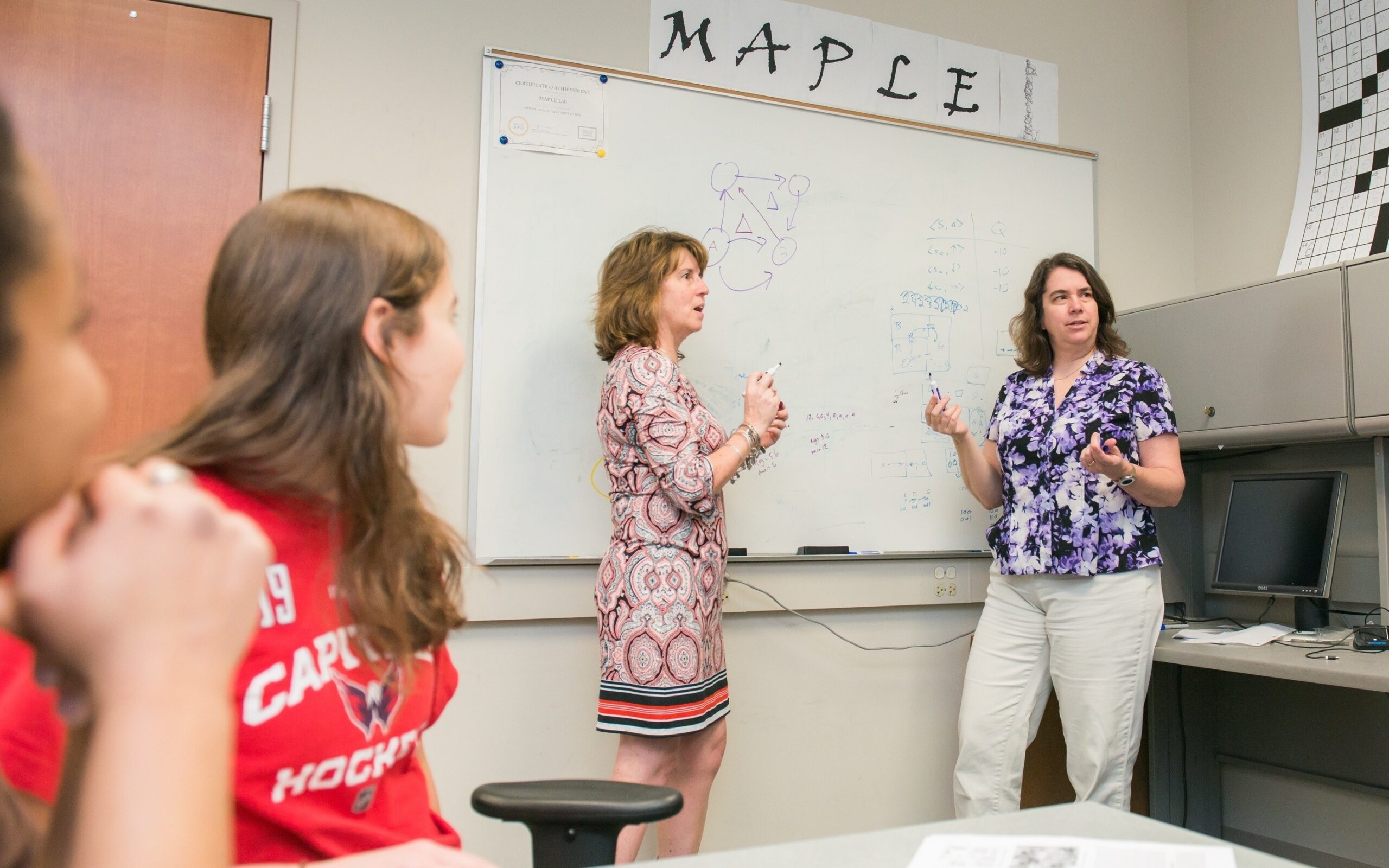A new UMBC scholars program is inviting students from all majors to work together on pressing challenges facing society, from sustainability to health and security issues.
UMBC’s Grand Challenge Scholars Program (GCSP), based on the National Academy of Engineering’s (NAE) Grand Challenges for Engineering, is now accepting applications for its first cohort. Beginning in fall 2016, these students will begin collaborating to develop solutions to major global challenges through coursework, research, service, and study abroad. Participants will each create their own unique approach to the program guided by their interests and including personal reflection on their experiences and growth as scholars.
Marie desJardins, associate dean in the College of Engineering and Information Technology (COEIT), professor of computer science, and director of the GCSP, describes the program as “a great match with so many things that UMBC and UMBC students are already doing—applied, project-based learning; service learning; entrepreneurial explorations; global involvement; and undergraduate research.”
Amelia Hallworth ‘17, biological sciences, is interested in the GCSP because of the interdisciplinary focus of the program. “Connections between different fields of study will emerge in unusual places, so I think it is important to share problems with people outside of your field,” she says.
While part of a national Grand Challenges initiative, UMBC’s program is unique in its outreach to students from all disciplines, including those beyond engineering fields. This very intentional interdisciplinary approach recognizes that effective, real-world solutions are developed collaboratively across fields of expertise, and that students benefit significantly from early opportunities to solve problems through teamwork.
Students who are accepted into the program will participate in seminars that explore the Grand Challenges outlined by the NAE, and will work to fulfill requirements in research, interdisciplinarity, entrepreneurship, global learning, and service. They will have the opportunity to develop their own pathway to complete those requirements based on the Grand Challenge topic they choose. The 14 core challenges include goals like making solar energy more economical, reverse-engineering the human brain, and restoring and improving urban infrastructure.
The program will combine existing UMBC course offerings, research opportunities, and co-curricular activities in ways that enable students to focus on understanding and impacting issues they care about with partners who have different approaches and ideas.
Nicholay Topin ‘18, computer science and electrical engineering (CSEE), is particularly interested in the program’s emphasis on interdisciplinary learning. “Many STEM fields are using computer science techniques to further their research, so becoming involved with a program that emphasizes interdisciplinary approaches seems logical,” he says.
Like some other scholars programs at UMBC, GCSP will also offer an affiliates program open to current UMBC students and students who intend to transfer to UMBC. Affiliates will be invited to attend events throughout the year to learn more about the GCSP and application process.
“The idea is to build on what students are already doing, and to give that activity more focus and direction,” explains desJardins. “We will provide a supportive, collaborative community and acknowledge student co-curricular activity with a formal recognition at graduation, honoring students’ hard work and commitment to addressing our world’s biggest challenges.”
Image: Marie desJardins and Anne Spence talk with students. Photo by Marlayna Demond ’11 for UMBC.

